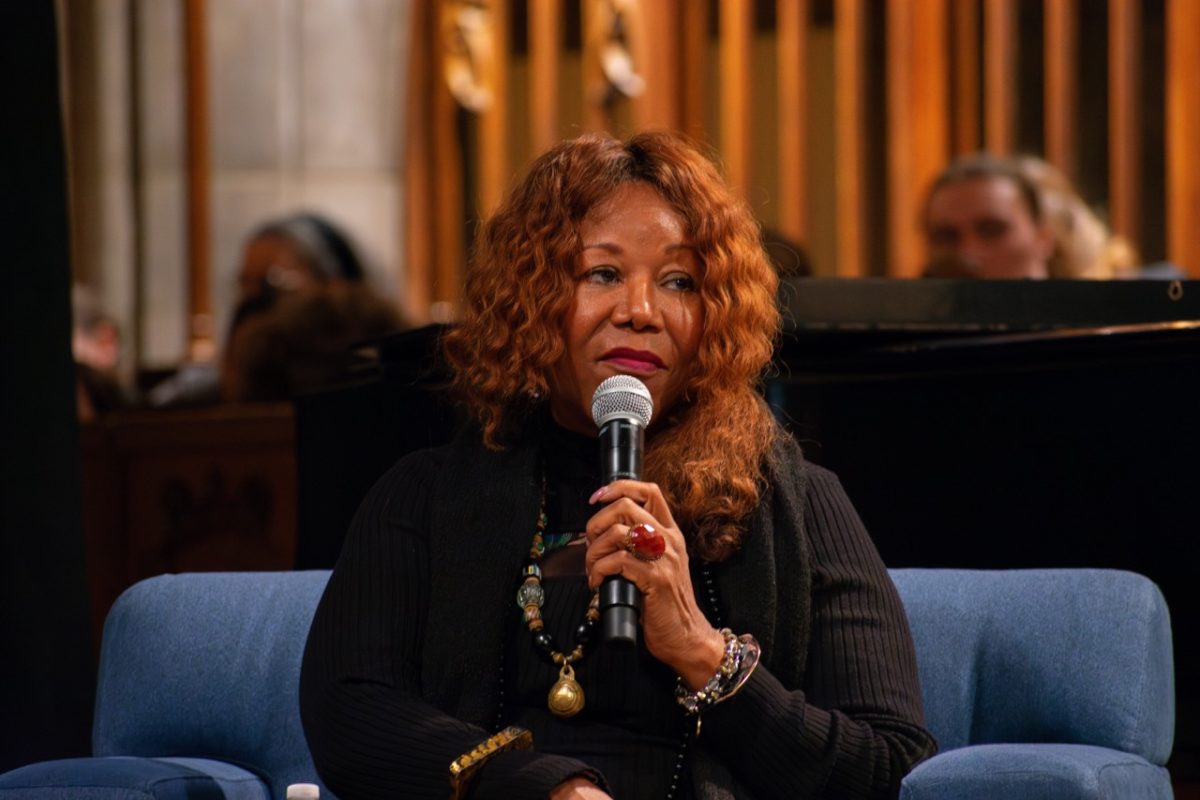The University held the 35th annual Martin Luther King Jr. (MLK) Commemoration Celebration at Rockefeller Chapel on January 29 with featured speaker Ruby Bridges, a civil rights activist who, at the age of six, was the first Black student to attend her elementary school.
The focal point of the event was a fireside chat with Bridges moderated by Associate Professor of U.S. history Rashauna Johnson. During the conversation, which lasted nearly an hour and a half, Bridges recounted what she remembered from elementary school and her activism today.
The event also featured remarks from University President Paul Alivisatos, third-year and Timuel D. Black Community Solidarity Scholarship recipient Arsima Araya, and Maurice Charles, dean of Rockefeller Memorial Chapel. There were also musical performances by Uniting Voices Chicago, a nonprofit organization that provides music education programming for youth.
In his opening remarks, Alivisatos reflected on the significance of the event being held in Rockefeller—the site of one of MLK’s first major speeches in Chicago in 1956.
“We gather each year not only to honor the extraordinary power of Dr. King’s vision, but also to consider the unmet opportunities of our time and to seek inspiration in his words and example to help us meet them,” he said.
After Alivisatos, Araya, and Charles spoke, the event moved into the conversation with Bridges, who began by recounting her experience on her first day at William Frantz Elementary School in New Orleans.
“I remember them chanting, ‘Two, four, six, eight, we don’t want to integrate.’ And they were throwing things, waving their hands, there were barricades, there were police officers everywhere,” Bridges said. “I need you to understand that what protected me was the innocence of a child. A six-year-old.”
Bridges then described the isolation she felt during that school year. Many teachers had quit their jobs, and parents refused to send their children to school. Bridges recalled her teacher, Barbara Henry, and the impact Henry made on her.
“This woman that taught me showed me love,” she said. “She is my best friend. She’s still alive. She lives in Boston, and she’s still my best friend.”
The conversation focused largely on what Bridges learned about racism from her experience as the first Black student to attend her elementary school. She recounted the day she first came face-to-face with racism, when a classmate at her elementary school told her she couldn’t play with him because his mother had forbidden it, repeating a racial slur she had used.
“I looked at him, and honestly, it felt like a weight lifted off my shoulders,” Bridges said about the experience. “He made [the nature of racism] make sense, and I can honestly say today and tell you that I wasn’t angry with him… He was repeating what was told to him.” Bridges continued, “Racism is a grown-up disease, and we must stop using our kids to spread it.”
Bridges concluded by speaking about how losing her son to gun violence shifted her perspective on the state of the United States today. “This fight that we are in today has absolutely nothing to do with what we look like,” she said. “The fight that we are in today is good and evil, and good and evil comes in all shades and colors.”
“Stop thinking this has something to do with what we look like. It doesn’t,” Bridges added. “Yes, racism is alive and well, but racism is just another tool used to divide us, and I believe with where we are today, we’re going to soon figure that out.”










Susan S Harmon / Feb 11, 2025 at 1:02 pm
RUBY BRIDGES NEW ORLEANS
6 YEAR OLD QUEEN
WALKED TO SCHOOL ONE DAY
THE INTEGRATION WAY
PAST ALL WHITE STUDENTS& KKK
NATIONAL GUARDSMEN CLEARIN’ HER WAY
SHE THE ONLY STUDENT WHO STAY
CREATIN’ & LEARNIN’ HISTORY FROM HER PREY
NOW SHE THE ONLY ONE-ALL DE OTHERS GONE
AND NOW FOR HER SON, THE GUN BAN ACT WON